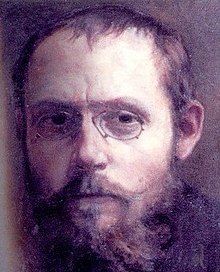Professional
Appearance



A professional is a member of a profession. The term also describes the standards of education and training that prepare members of the profession with the particular knowledge and skills necessary to perform the role of that profession.
Quotes
[edit]- Some persons are led to believe that ... the whole idea of their lives is that they ought either to increase their money without limit, or at any rate not to lose it. The origin of this disposition in men is that they are intent upon living only, and not upon living well; and, as their desires are unlimited they also desire that the means of gratifying them should be without limit. ... If they are not able to supply their pleasures by the art of getting wealth, they try other arts, using in turn every faculty in a manner contrary to nature. The quality of courage, for example, is not intended to make wealth, but to inspire confidence; neither is this the aim of the general's or of the physician's art; but the one aims at victory and the other at health. Nevertheless, some men turn every quality or art into a means of getting wealth; this they conceive to be the end, and to the promotion of the end they think all things must contribute.
- The price one pays for pursuing any profession or calling is an intimate knowledge of its ugly side.
- James Baldwin "The Black Boy Looks at the White Boy" in Esquire (May 1961); republished in Nobody Knows My Name: More Notes of a Native Son (1961)
- Scholarship, far from leading inexorably to a profession, may in fact preclude it. For it does not permit you to abandon it.
- Walter Benjamin, "The Life of Students" (1915), in Walter Benjamin: Selected Writings – vol. 1: 1913-1926 (Harvard University Press: 1996), p. 38
- When I speak of the purpose of self-culture, I mean that it should be sincere. In other words, we must make self-culture really and truly our end, or choose it for its own sake, and not merely as a means or instrument of something else. And here I touch a common and very pernicious error. Not a few persons desire to improve themselves only to get property and to rise in the world; but such do not properly choose improvement, but something outward and foreign to themselves; and so low an impulse can produce only a stinted, partial, uncertain growth. A man, as I have said, is to cultivate himself because he is a man. He is to start with the conviction that there is something greater within him than in the whole material creation, than in all the worlds which press on the eye and ear; and that inward improvements have a worth and dignity in themselves quite distinct from the power they give over outward things. Undoubtedly a man is to labor to better his condition, but first to better himself. If he knows no higher use of his mind than to invent and drudge for his body, his case is desperate as far as culture is concerned.
- William Ellery Channing, “Self-Culture”
- The professional man lives off ideas, not for them. ... He has acquired a stock of mental skills that are for sale. The skills are highly developed, but we do not think of him as being an intellectual if certain qualities are missing from his work—disinterested intelligence, generalizing power, free speculation, fresh observation, creative novelty, radical criticism. At home he may happen to be an intellectual, but at his job he is a hired mental technician who uses his mind for the pursuit of externally determined ends. It is this element—the fact that ends are set from some interest or vantage point outside the intellectual process itself—which characterizes both the zealot, who lives obsessively for a single idea, and the mental technician, whose mind is used not for free speculation but for a salable end.
- Richard Hofstadter, Anti-Intellectualism in American Life (1974), p. 27
- Towards this fine honor of a trade converged all the finest, all the most noble sentiments—dignity, pride. Never ask anything of anyone, they used to say. … In those days a workman did not know what it was to solicit. It is the bourgeoisie who, turning the workmen into bourgeois, have taught them to solicit.
- Charles Péguy, Basic Verities, A. & J. Green, trans. (New York: 1943), p. 83
- The science, which teaches arts and handicrafts
Is merely science for the gaining of a living;
But the science which teaches deliverance from worldly existence,
Is not that the true science?- Prajñadanda (The Staff of Wisdom) attributed to Nagarjuna
- Perhaps all professions ... are filled with hostility toward the individual, saturated with hatred by those who find themselves mute and sullen in an insipid duty.
- Rainer Maria Rilke, Letters to a Young Poet, 6
- All professions are conspiracies against the laity.
- George Bernard Shaw, The Doctor's Dilemma (1911), Act I
- Alternative: Every profession is a conspiracy against the laity

